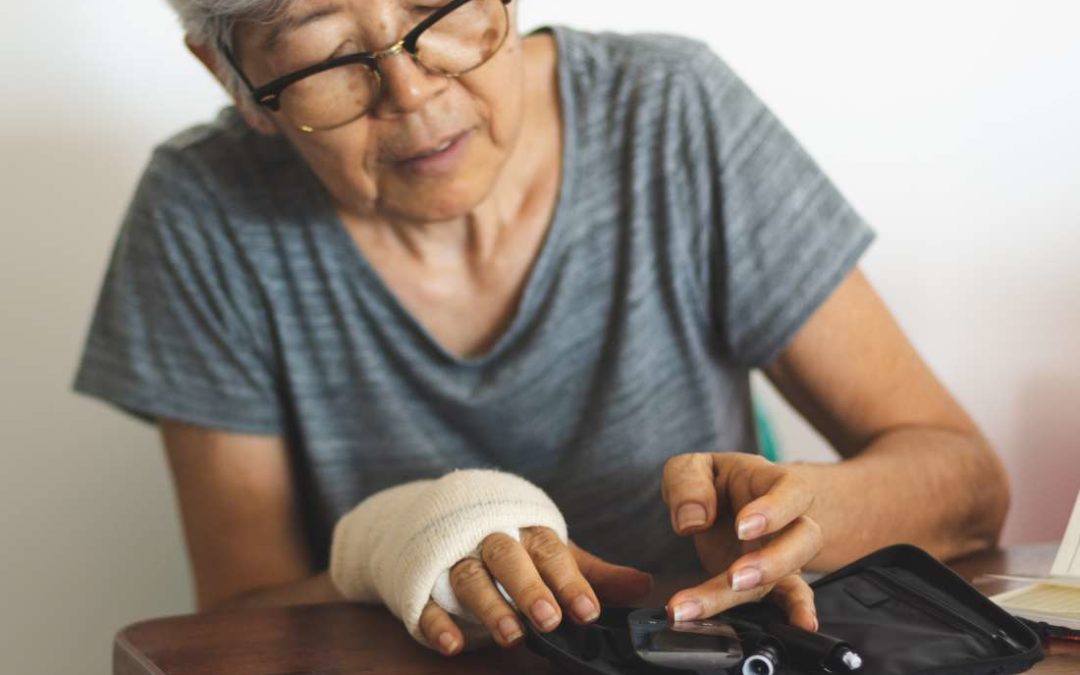What is Diabetic Hyperglycemia
Diabetic Hyperglycemia is a state of high blood glucose levels despite treatment. In which you are taking your medications or insulin, however; the levels of glucose in the blood are still high.

Signs of hyperglycemia
Diabetes mellitus has several types including type 1 and type 2. It requires treatment by insulin, medications or both.
Early and late signs and symptoms:
It shows different signs and symptoms that the patient suffers. The severity of symptoms depends on the extent of blood glucose levels and the duration of the high levels.
Early Signs of Hyperglycemia
The early signs are similar to a patient not knowing
That he/she has diabetes. The similarity comes from the idea that blood glucose levels are partially under control but the levels are still higher than the required levels for the patient. The levels of glucose are above 180 mg/dl.
The early signs include:
- Dry mouth: High glucose levels in the blood drives away water from cells and tissue leading to dryness of mouth
- Increasing the frequency of urination: High glucose levels drive water out. The volume of urine increases leading to more frequency of urination.
- Increasing thirst: This occurs due to water loss.
- Water loss.

It happens due to the inability of the body to use glucose, so it shifts to burn fats. Weight loss occurs mainly in type 1 diabetes.
- Fatigue
- Nausea and vomiting
- Headache
- Blurred vision
Late Signs of Hyperglycemia
Late signs are due to severely high levels of glucose in the blood above 200mg/dl and it sometimes exceeds 500 mg/dl.
The late signs include:

- Fruit-like breath odor: The odor comes from the use of fats and proteins and the formation of ketone bodies. Ketone bodies are responsible for the odor.
- Extremely dry mouth.
- Pain in the abdomen.
- Nausea.
- Vomiting.
- Severe fatigue.
- Shortness of breath and difficulty to breath.
- Confusion: Ketone bodies cross its way to the brain. They damage the brain.
- Coma.
- Muscles weakness.
- Severe dehydration.
- Heart rate increases.
Hyperglycemia causes
It depends on medications and the patient lifestyle.
Causes:
- Taking the wrong dose of insulin or oral medications for diabetes.
- Skipping a dose of insulin or oral medications.
- Improperly injecting insulin which causes loss of part of the dose.
- Taking expired insulin or oral medications.
- The doctor prescribed the wrong dose or drug.
- Not eating according to the dietary plan.
- Low physical activity.
- Stress: it increases substances and hormones in the body that increases glucose levels in the blood. Stress includes surgery, injury, emotional, and psychological, illness.
- Taking medications that increase blood glucose levels such as
- Steroids: To treat inflammation as in asthma, severe infections.
- Birth control pills.
- Thiazide diuretics: To treat high blood pressure or fluid accumulation in the body.
- Mental and antidepressant drugs.
- Progesterone: To support pregnancy or birth control.
- Catecholamines: They are normally present in our body like epinephrine, they are also present in the market as medications to treat diseases and conditions such as low blood pressure, low pulse rate, etc…
- Drugs that stimulate the liver to release glucose in the blood such as Theophylline: A drug that manages and treats asthma.
- Some antimicrobial drugs
- Anti-cancer drugs: They are drugs that induce damage and breakdown of cancer cells which lead to the release of glucose from the cells and the liver. The liver is the main organ of glucose storage.
- Drugs that are toxic to beta-cells of the pancreas. Beta cells are the cells that produce insulin. These drugs include certain anticancer drugs.
Hyperglycemia risk factors
The risk depends on factors related to the patient, the health status of the patient and blood levels of glucose.

Risk factors include:
- The patient age: Patients above 65 years old are at higher risk.
- You are obese or your weight is increasing: Patients with high or increasing weight are more able to develop more and more resistance of the body to insulin. It is riskier in type 2 than type 1 patients; because they already have insulin resistance.
- Other diseases such as that of heart, kidney, and polycystic ovary syndrome.
- If you are pregnant: During pregnancy, hormone levels change which normally increase slightly glucose levels in the blood.




